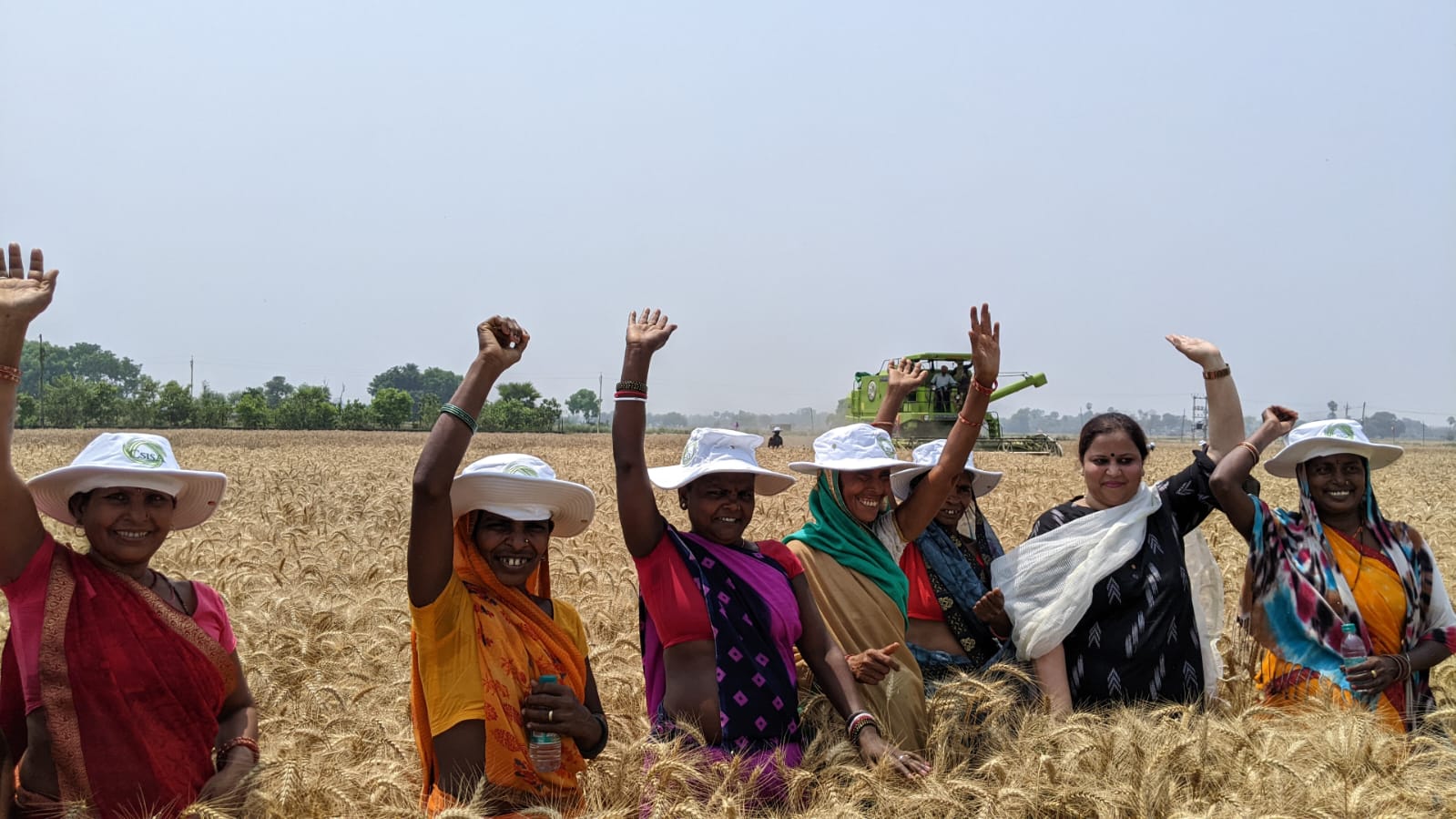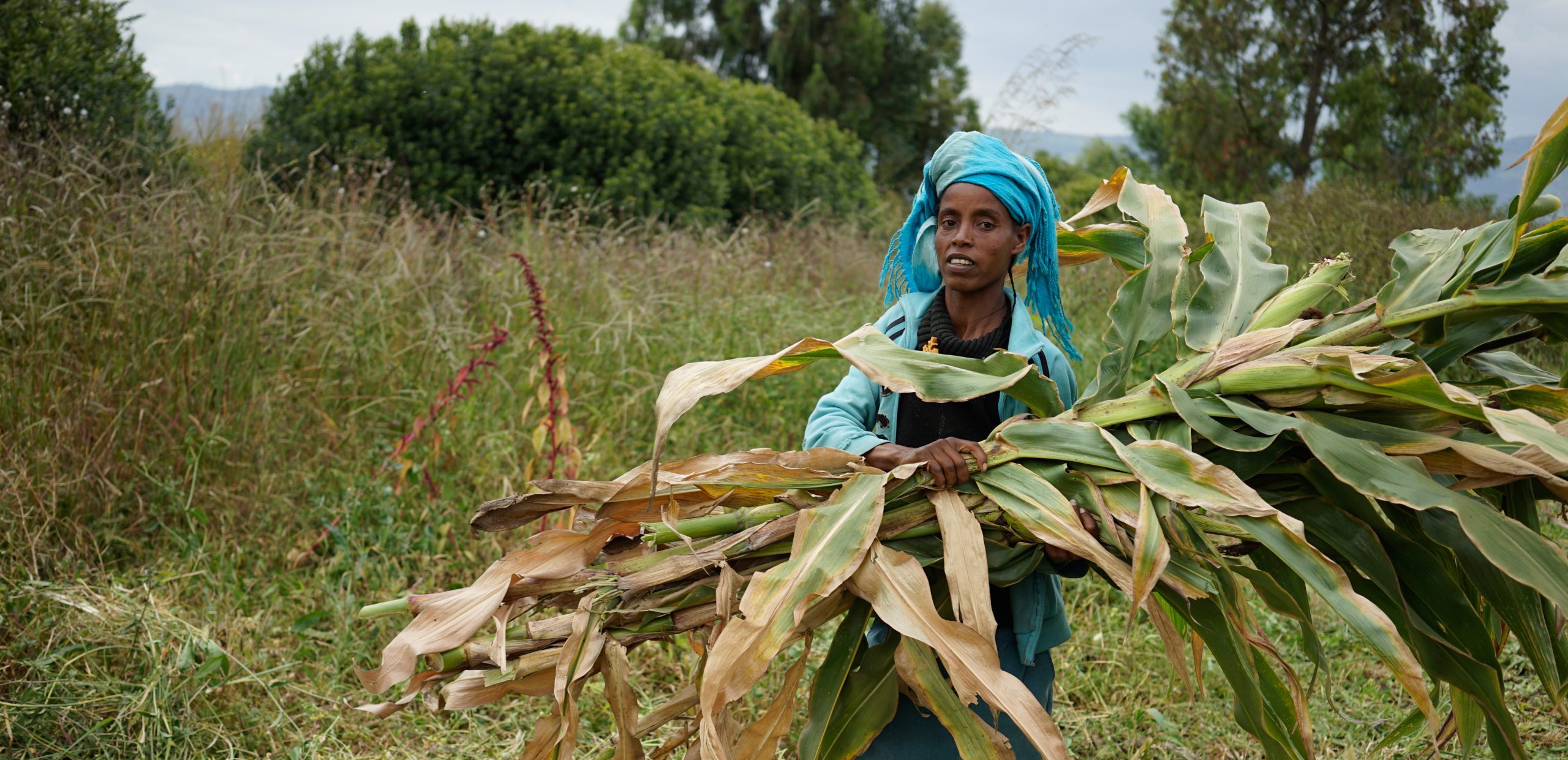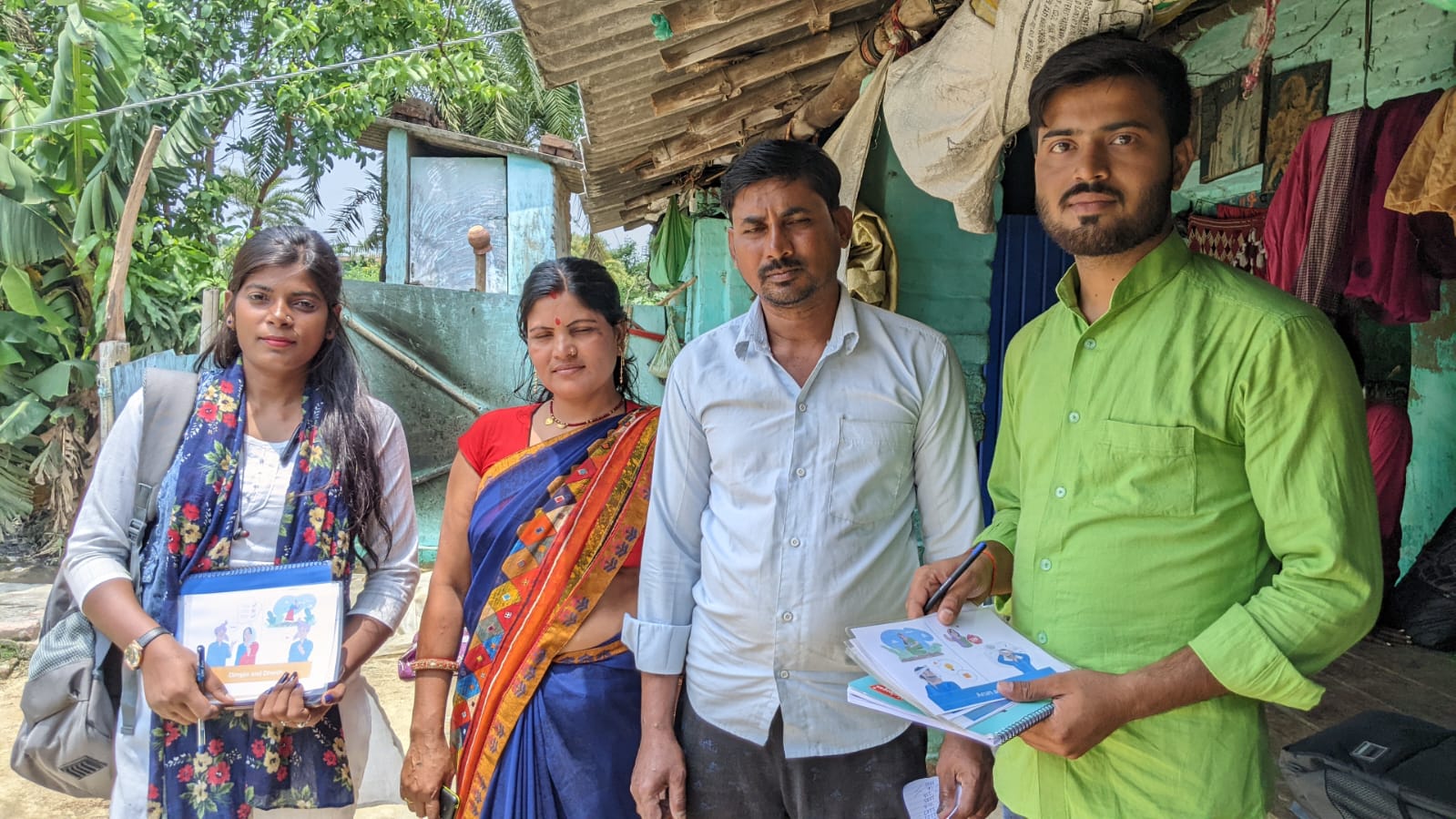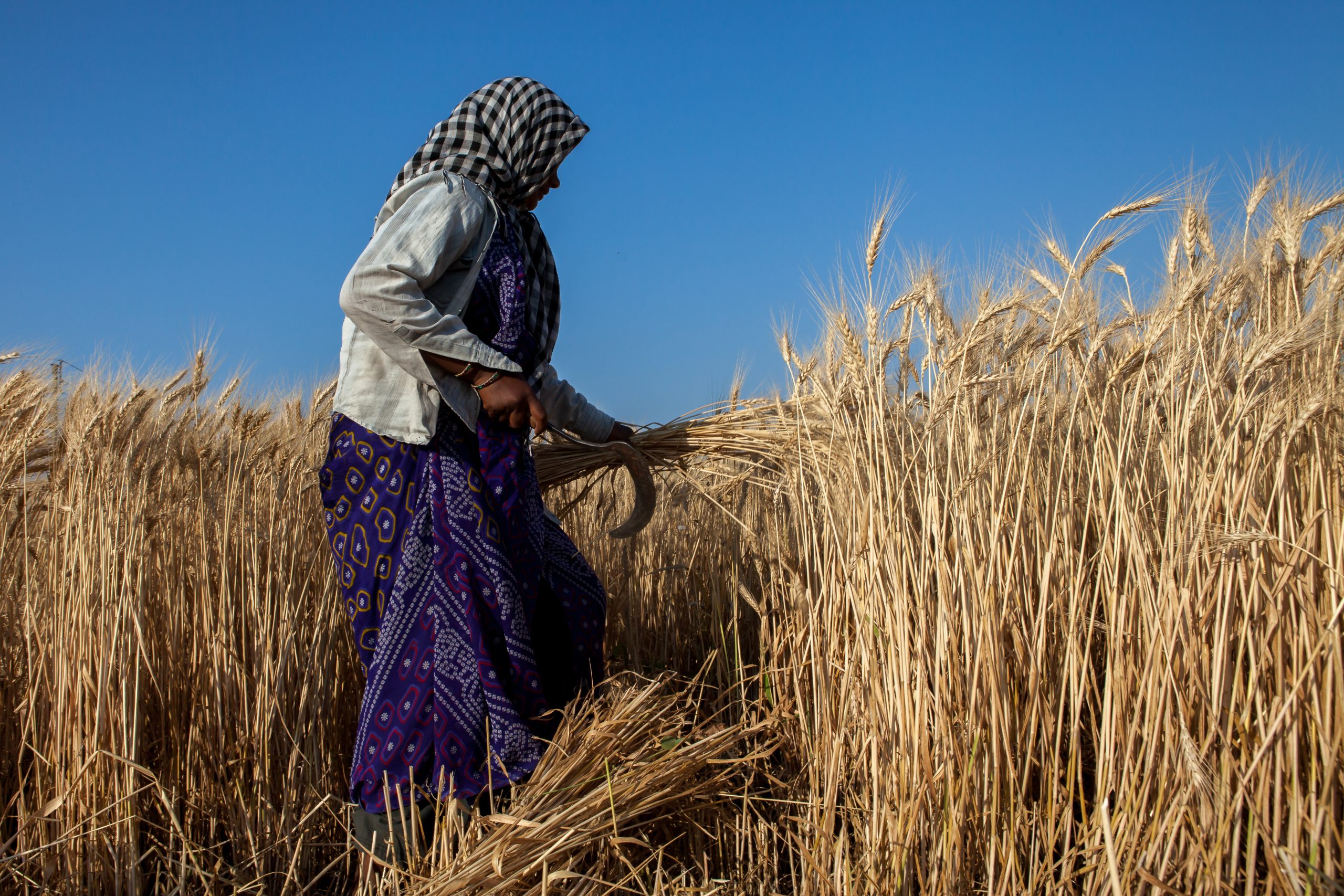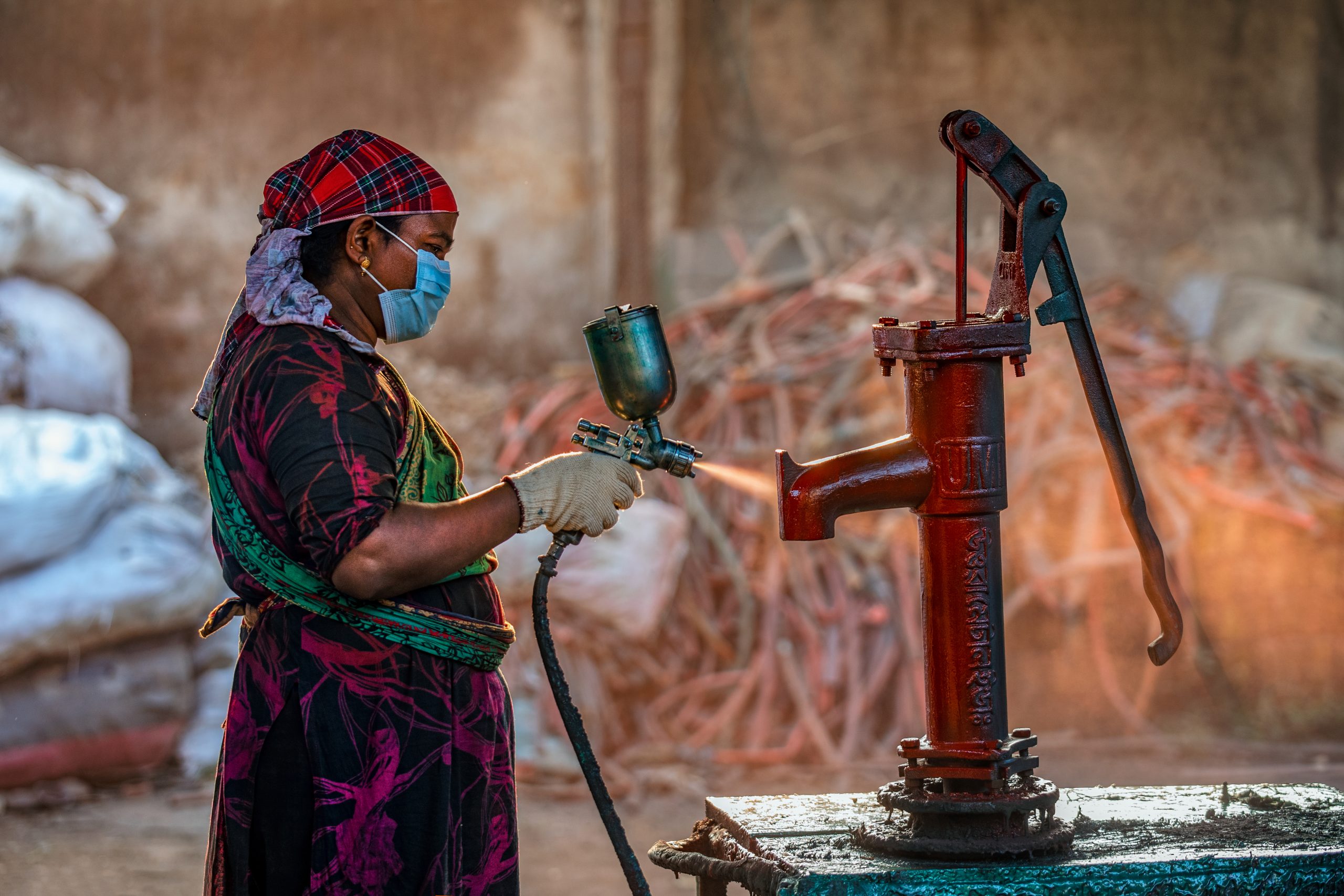rural women
Technology addresses gender inequality in wheat farming
 Gender equality, youth and social inclusion
Gender equality, youth and social inclusion
Male and female farmers in Ethiopia and India face different challenges to accessing new wheat varieties, discovers CIMMYT researchers.
Gender-informed policies fundamental for climate change adaptation
 Climate adaptation and mitigation
Climate adaptation and mitigation
Reducing the gender gap in Ethiopian farming households can enhance climate change adaptation by female-headed households by almost 19%.
Researchers use storytelling to evaluate women’s agency in agricultural production
 Capacity development
Capacity development
A study in India highlights who does what in wheat farming to support the design of gender-responsive interventions in the region.
New publications: Caste-gender intersectionalities in wheat-growing communities in Madhya Pradesh, India
 Gender equality, youth and social inclusion
Gender equality, youth and social inclusion
Study reveals gaps and interactions between caste, gender and agricultural decision-making.
Women in agriculture mechanization in Bangladesh
 Gender equality, youth and social inclusion
Gender equality, youth and social inclusion
Many women are working enthusiastically as part of agriculture mechanization, as supported by CIMMYT’s CSISA-MEA project.
